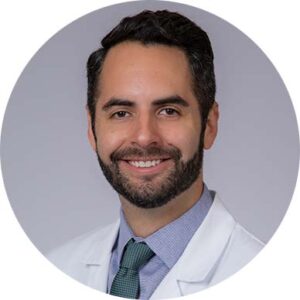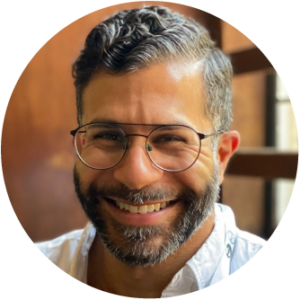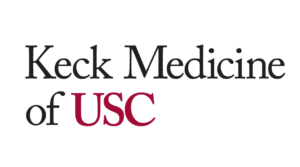Health and Wellbeing
PEAK Collaborative:
Enhancing Performance and Well-being of Surgeons
The Challenge
When he was a young athlete, Dr. Graeme Rosenberg had a full set of tools and tactics to help him perform at his best. He prepared for events and competitions with effective coaching, nutritious meals, ample rest, and specific equipment. Many of these skills and techniques became invaluable to him when reapplied to the demands of surgical training.
Now, as a cardiothoracic surgeon, Dr. Rosenberg still must consistently perform at his peak to ensure good outcomes for his patients. This high-performance drive is shared amongst all healthcare clinicians. But far too many clinicians also report professional dissatisfaction, with nearly half reporting burnout, which impacts the quality of patient care they can provide.
What would happen if surgeons and healthcare providers could prepare and recover like world-class high performers from the worlds of professional sports or the military?

The Partnership
The Department of Surgery at the USC Keck School of Medicine is partnering with USC Dornsife Public Exchange to collect baseline data for the Performance Education and Applied Knowledge (PEAK) Collaborative. The project’s aim is to equip clinicians and their teams with evidence-based strategies and tools to perform at their best consistently over the arc of their career. This pilot project will inform the development of a larger program.
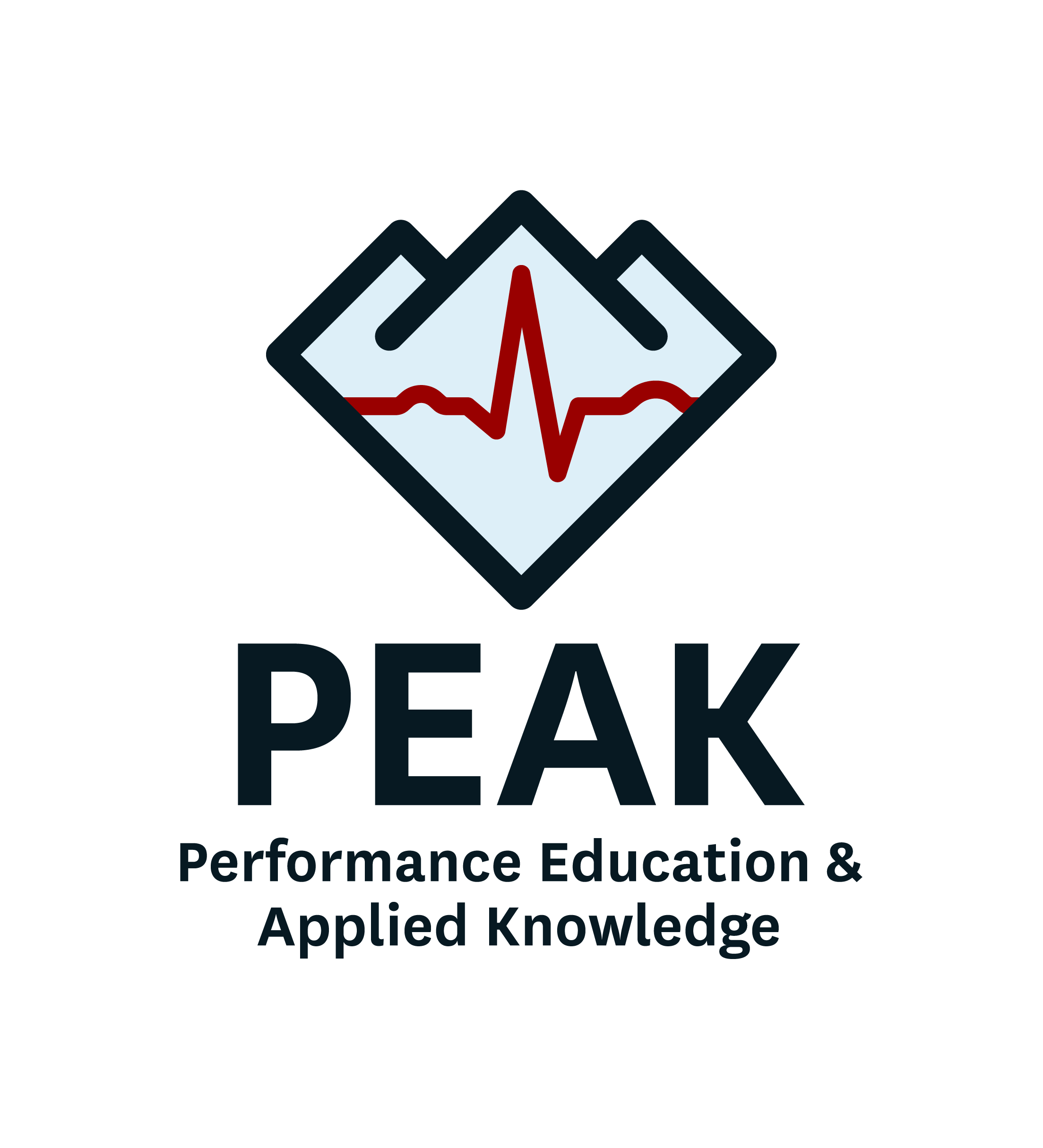
The Approach
This project is building a foundation to enhance clinicians’ abilities to meet the modern demands of a career in medicine. The objectives are to gain insight into the following:
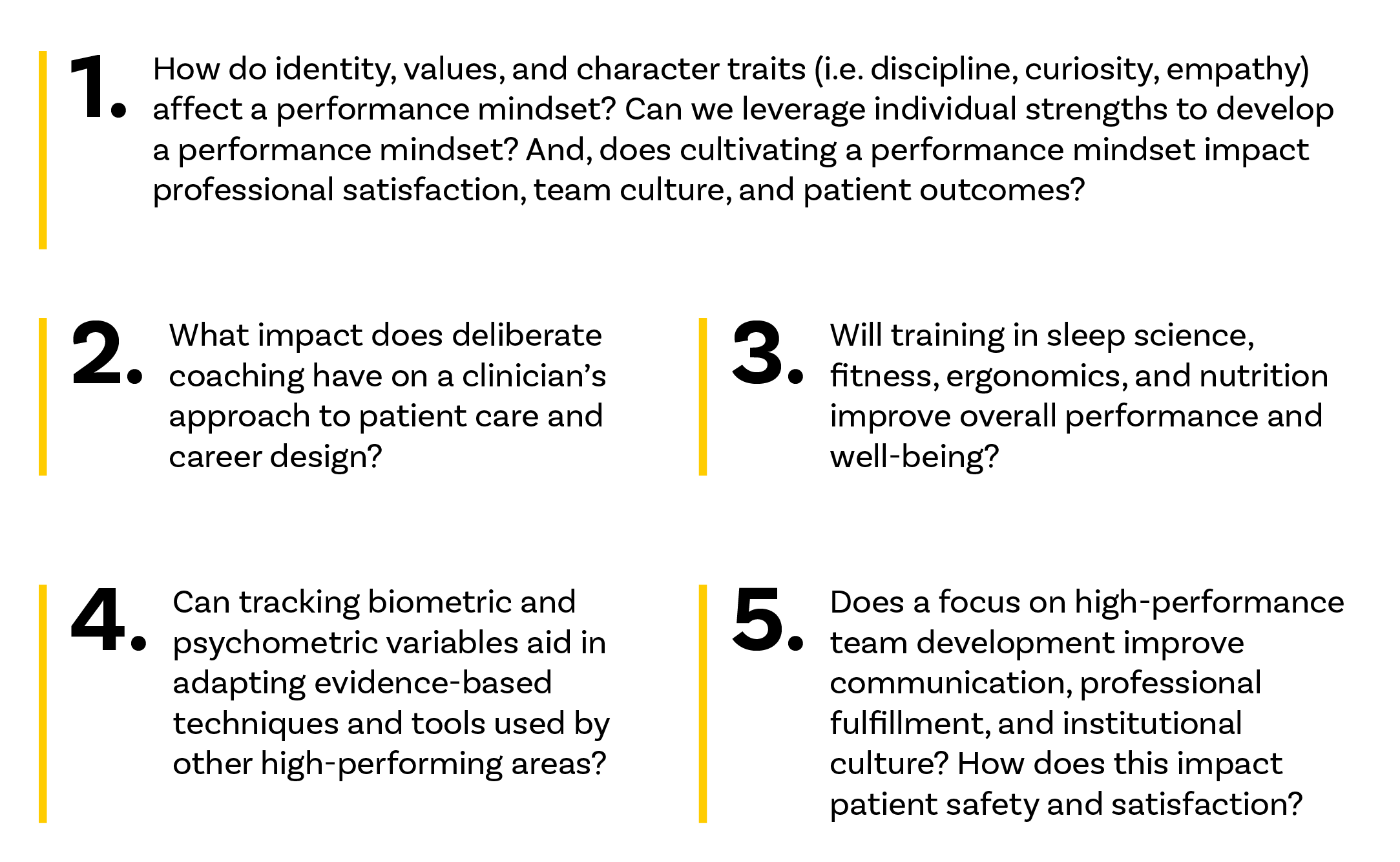
The first steps will involve beta testing through small, scalable investigations and engagements with the Department of Surgery of Keck Medicine of USC. This pilot project will ultimately inform a robust, thought-leadership strategy built to boost clinical performance and well-being.
Through the research, we aim to answer an important question: Can surgeons adopt a performance mindset the way Michael Phelps trained for the Olympics? And if so, what happens to them and the care they provide? What organizational investments can and should be made to support the application of performance science and human factors research in medicine?
“PEAK Collaborative is an opportunity to develop an ecosystem that explores the human side of a service in medicine. We aim to cultivate a performance mindset in clinicians that is both empowering and protective in the realities of modern health care.” – Dr. Graeme Rosenberg, Thoracic Surgeon, Director of Wellness, Keck School of Medicine Department of Surgery
The pilot study population consists of surgeons and advanced practice providers at Keck Medical Center. Using wrist-based sensors and application-based biometric assessments, measures of sleep, fatigue, stress, and impact on life will be collected along with baseline demographics and psychometric evaluations. The project will also highlight the barriers to successful intervention implementation and engagement from clinicians.
Study results will inform the development of a multi-disciplinary program with a focus on the following core concepts:

To engage with the study team, please contact Public Exchange Senior Project Manager, Caroline Nguyen
cpnguyen@usc.edu

Performance Mindset
Values & priorities, habit-building, reflection

Energy & Capacity
Recovery, sleep/wake science, energy management

Stress Management
Psychological tactics, breathwork science, mindfulness practice
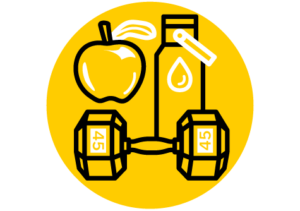
Health & Wellness
Nutrition, hydration, fitness, ergonomics, career longevity

Self-Agency & Emotional Intelligence
Having control over one’s life and emotions

High-Performance Team Development
Communication, leadership, culture

Continuing Education
The science of deliberate practice & coaching
Project Team Members
